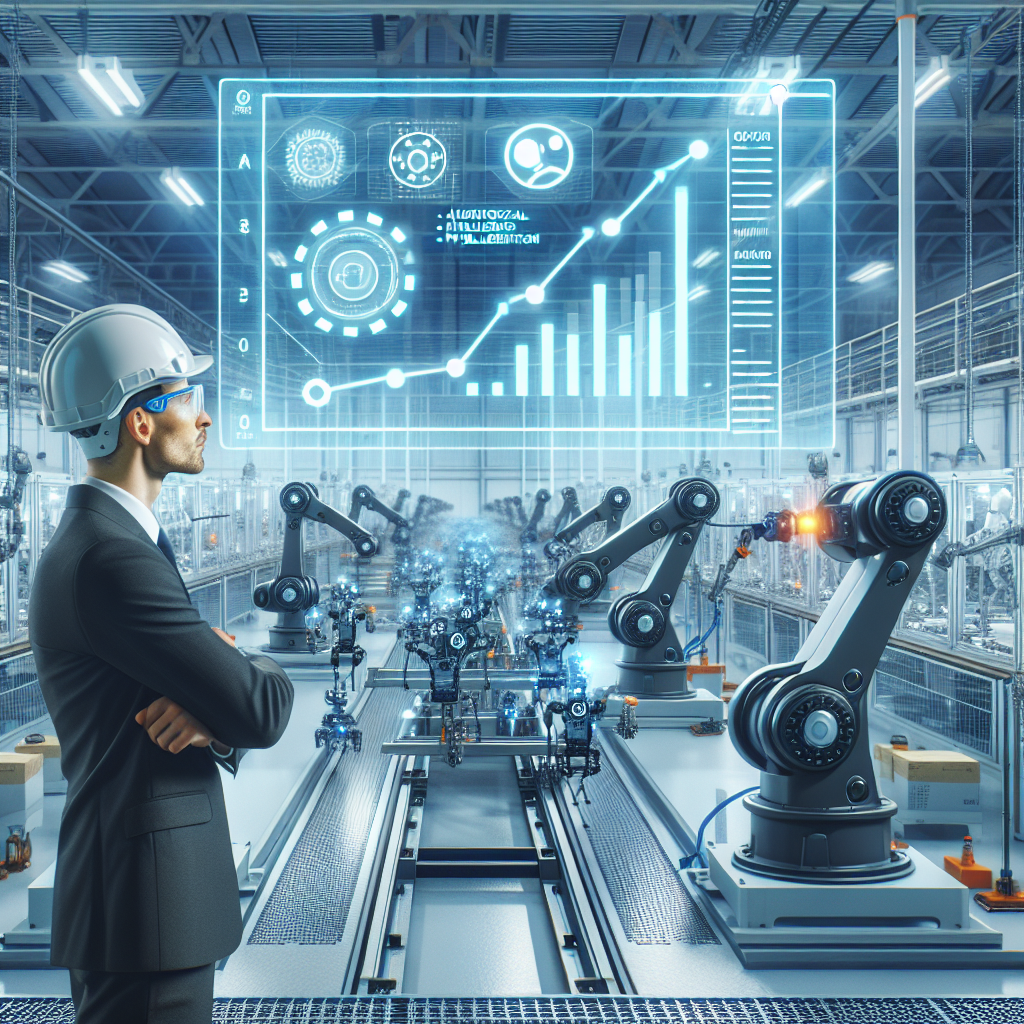The Benefits of AI-powered Decision-making in Manufacturing
Artificial Intelligence (AI) has revolutionized many industries, including manufacturing. AI-powered decision-making in manufacturing has the potential to streamline operations, increase efficiency, and improve overall profitability. In this article, we will explore the benefits of AI-powered decision-making in manufacturing and how it is transforming the industry.
1. Improved Efficiency
One of the main benefits of AI-powered decision-making in manufacturing is improved efficiency. AI can analyze vast amounts of data in real-time and make decisions faster and more accurately than humans. This can lead to reduced downtime, increased productivity, and lower operating costs. For example, AI can predict equipment failures before they happen, allowing manufacturers to schedule maintenance proactively and avoid costly unplanned downtime.
2. Enhanced Product Quality
AI-powered decision-making can also improve product quality in manufacturing. By analyzing data from sensors and other sources, AI can identify patterns and trends that indicate potential defects or quality issues. This allows manufacturers to catch problems early in the production process and make adjustments to ensure that every product meets quality standards. This can lead to higher customer satisfaction and reduced waste from defective products.
3. Optimized Supply Chain Management
AI can also help manufacturers optimize their supply chain management. By analyzing data on supplier performance, inventory levels, and demand forecasts, AI can make recommendations on the best suppliers to use, the optimal inventory levels to maintain, and the most efficient shipping routes to take. This can lead to reduced lead times, lower inventory carrying costs, and improved overall supply chain efficiency.
4. Predictive Maintenance
Another benefit of AI-powered decision-making in manufacturing is predictive maintenance. AI can analyze historical data on equipment performance and identify patterns that indicate when a machine is likely to fail. By predicting equipment failures before they happen, manufacturers can schedule maintenance proactively, avoid costly downtime, and extend the lifespan of their equipment. This can lead to significant cost savings and improved reliability in manufacturing operations.
5. Enhanced Decision-making
AI can also help manufacturers make better decisions by providing real-time insights and recommendations based on data analysis. By analyzing data on production processes, quality control, and supply chain management, AI can identify opportunities for improvement and suggest actions to take. This can help manufacturers make more informed decisions, reduce risks, and drive continuous improvement in their operations.
FAQs
Q: How does AI-powered decision-making in manufacturing differ from traditional decision-making methods?
A: AI-powered decision-making in manufacturing differs from traditional methods in several ways. AI can analyze vast amounts of data in real-time and make decisions faster and more accurately than humans. AI can also identify patterns and trends that may not be apparent to human operators, leading to more informed decision-making.
Q: What types of data can AI analyze in manufacturing?
A: AI can analyze a wide range of data in manufacturing, including sensor data from equipment, production data, quality control data, and supply chain data. By analyzing this data, AI can identify patterns, trends, and anomalies that can help manufacturers improve efficiency, product quality, and decision-making.
Q: How can manufacturers implement AI-powered decision-making in their operations?
A: Manufacturers can implement AI-powered decision-making in their operations by investing in AI technology, collecting and organizing data from their operations, and training AI algorithms to analyze and make decisions based on this data. Manufacturers can also work with AI vendors and consultants to develop custom AI solutions tailored to their specific needs and objectives.
In conclusion, AI-powered decision-making in manufacturing offers numerous benefits, including improved efficiency, enhanced product quality, optimized supply chain management, predictive maintenance, and enhanced decision-making. By harnessing the power of AI, manufacturers can transform their operations, reduce costs, and gain a competitive edge in today’s fast-paced global marketplace.

